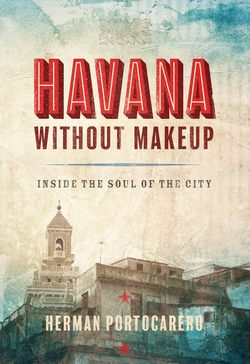Читать книгу Havana without Makeup - Herman Portocarero - Страница 31
На сайте Литреса книга снята с продажи.
Оглавление24.1762: BRITISH OCCUPATION AND A DEFINING MOMENT
The uniforms used during the daily cañonazo, as well as the cannon itself, date back to the period just after the short British occupation of Havana in 1762. It may seem farfetched to call this event and the eleven months of British rule a defining moment of Cuba’s entire history, but this is indeed the case.
The reasons for the British invasion matter less that its effects. The invasion was one of the many tortuous side events of the endless wars between European powers that unavoidably spilled over into their Caribbean possessions. In this case, the Seven Years War (1756–1763) involved Britain, Spain, and France. But at least four essential events occurred in Havana.
First, the inadequate defense of the city by the Spanish upset the local aristocracy. The Marquesa de Santa Ana wrote to the king in Madrid, complaining that the city had not been conquered, but simply surrendered (“dieron por conquista lo que fue rendición”). The Cuban elite lost confidence in the colonial government. Ideas of political independence were next. The genie was out of the bottle. While loyalty to Madrid was still mandatory, Cuba’s patriots now started to call the island la patria chica, the little motherland, and cultivated their own expectations for it, no longer coinciding with those of la madre patria.
Secondly, the short British occupation opened the port of Havana, normally restricted to trade with the motherland and other Spanish colonies, to a wave of free trade, and shipping began to flourish overnight. From an economic point of view, Spain was revealed as a dead weight on Cuba’s shoulders, and for the first time a close relationship with continental North America began to look like a natural step for Havana.
In third place, Havana’s spirit revealed itself as indomitable and uncontrollable, if also deeply opportunistic: it was essentially a port city, equipped for survival under any circumstances. The army and the government had surrendered in shame, but the people gladly danced and slept with the enemy. A famous satire from those days about casual sex in the warehouses reports:
| Las muchachas de La Habana | The girls of Havana |
| No tienen temor a Dios | Have no fear of God |
| Y van con los Ingleses | And go with the English |
| Entre bocoyos de arroz | Between bales of rice |
Fourth, the Spanish colonial system had developed Cuba as a commercial and administrative hub. But once the advantages of free trade had been sampled, Cuban landowners realized that they would be far better off if the country also became more productive. Sugar cane cultivation expanded, and with it the need for slaves. The great surge of slave imports during the late eighteenth and early nineteenth centuries greatly strengthened the African part of cubanía.
It was in the days of the British occupation that the first crude forms of Spanglish invaded the port, the taverns, and the warehouses (where, according to the poem, easy sex was on offer). Not surprisingly, the first expressions were the most vulgar ones, as reported by the chroniclers: Sanavabiche! Guanti foqui?
The governor who surrendered the city to the British, Juan de Prado Portocarrero, was sent back to Spain in disgrace. He is said by historians “to have lacked the experience for irregular warfare in the Americas and the Caribbean.” He had also refused to side with Morel, the bishop of Santiago, who wanted to incite a people’s guerrilla against the occupation. Morel’s ideas would apparently not have worked anyway, but he was nevertheless shipped off to Florida by the British.
Many of the situations seen during that fateful year would return, almost identically, during the Período Especial that began in 1989, when the country was politically and economically adrift, and when Havana had to fall back on the same survival mode, with all its ingredients.
A new and vast wave of Spanglish is certainly hanging over Havana now; the Cuban street slang known as chabacano is already peppered with it. Havana remembers 1762 as if it were yesterday.
